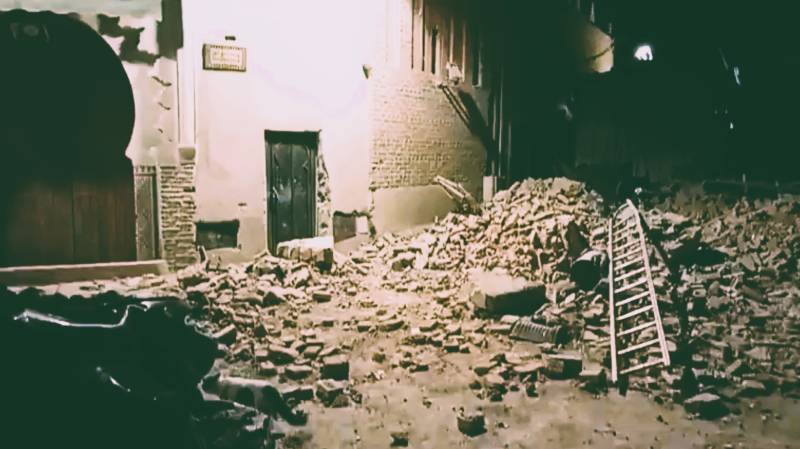
At least 820 people were killed and injured hundreds when Morocco was struck by a massive earthquake measuring 6.8 on the Richter Scale late on Friday, the country's interior ministry said.
However, the figures are conservative, with the figure set to rise as the rubble is cleared and the country continues to experience a series of strong aftershocks.
The United States Geological Survey, which tracks earthquakes globally, said that the epicentre of the quake was located 71 kilometres southwest of tourist hotspot Marrakesh. Other municipalities struck include AL-Haouz, Ouarzazate, Azilal Chichaoua and Taroudant.
Notable quake, preliminary info: M 6.8 - 56 km W of Oukaïmedene, Morocco https://t.co/X8RNuHZ6hH
— USGS Earthquakes (@USGS_Quakes) September 8, 2023
The earthquake was strong enough to cause people to rush out of their homes and other establishments and pour into the streets as buildings shook violently. Many spent the rest of the night under the open sky, too afraid to go back into buildings.
Hospitals in Marrakesh were flooded with people who suffered injuries in the quake. At least 672 people were injured, including 205 critically.
Al-Haouz, which was closest to the epicentre of the quake, saw several buildings collapse and trap entire families, media reported. A third of all casualties from the quake were reported from there.
Locals said that immediately after the quake, as they rushed into the streets, they were met with screams and cries from those who were trapped in the rubble of crumbling buildings.
The quake also caused a brief power outage in large parts of Morocco, leading to a loss of internet connectivity, which was reported by internet monitoring service NetBlocks.
⚠️ Confirmed: Real-time network data show a disruption to internet connectivity in Marrakesh, #Morocco following a 6.8 magnitude earthquake; the outages are attributed to power cuts reported in the region 📉 pic.twitter.com/ruXKo6uli6
— NetBlocks (@netblocks) September 8, 2023
The interior ministry said that this was the strongest quake to hit the country.
Northern Morocco is located close to the boundary between the African Continental Plate and the Eurasian Continental Plate, the Azores–Gibraltar Transform Fault. This zone of right-lateral strike-slip becomes transpressional at its eastern end, with the development of large thrust faults.
National response required
The USGS, which detected the quake, said that its PAGER system provides preliminary assessments of the impacts of earthquakes. The system had determined that Friday's earthquake carried an orange alert for economic losses with significant damage likely.
USGS said that in the past, earthquakes of this magnitude with the orange alert have required a response at the regional or national level.

